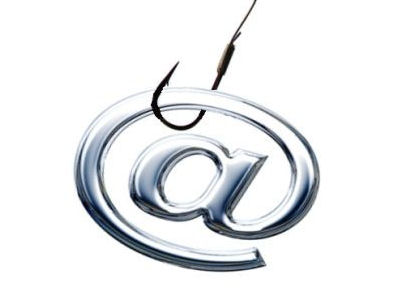

A Manchester man has been jailed for six years and six months for his part in a phishing scam that stole more than £1.5m from hundreds of UK students’ bank accounts.
Damola Clement Olatunji received the sentence at Southward Crown Court on Friday following an investigation by the Metropolitan Police Central e-Crime Unit (PCeU). The sentence followed that of Londoner Amos Njoroge Mwangi, who was jailed for three years and three months at an 11 June hearing, according to the Metropolitan Police.
While police said there is no evidence linking the two men, both were found to be responsible for similar email-based scams against students.
“Mwangi and Olatunji were determined fraudsters who systematically targeted British students in order to steal large amounts of money,” said Detective Inspector Jason Tunn of the PCeU, in a statement.
Both Olatunji and Mwangi were arrested in raids in Manchester and London on 7 December, 2011, when police siezed computers and storage media belonging to both men.
Mwangi’s computers were found to contain applications for building phishing emails and registering fake websites, while Olatunji’s systems were found to contain more than 1,300 student loan account log-in details.
Police said they were able to link Olatunji to £304,000 actual fraud and £162,000 attempted fraud, and also found evidence linking him to separate fraud against Halifax customers valued at £75,000.
Police were alerted to the scam in August of 2011 and worked with the Student Loans Company, banks and internet service providers during the investigation.
Five other people arrested as part of the investigation remain on bail – a 25-year-old woman and two men aged 38 and 35 arrested in Greater Manchester, and a 49-year-old woman and a 31-year-old man detained in Stratford, north-east London.
Google, Facebook, Microsoft, PayPal and 11 other companies in February announced a proposed standard for email sending and receiving in an attempt to stamp out phishing. DMARC, or Domain-based Message Authentication, Reporting and Conformance, is a system that will aid communication between companies and consumers by creating a standardised way of authenticating emails.
The other companies working in the DMARC group are AOL, Yahoo, Bank of America, Fidelity, LinkedIn, American Greetings and email security providers Agari, Cloudmark, eCert, ReturnPath and Trusted Domain Project.
Phishing persists as a major problem, with recent data from the OTA suggesting that hundreds of thousands of accounts are hijacked daily.
Is Microsoft Office your friend? Take our quiz.
American space agency prepares for testing of Boeing's Starliner, to ensure it has two space…
As UK and Europe develop closer military ties, European Commission says it will invest €1.3…
Zuckerberg seeks to revive Facebook's original spirit, as Meta launches Facebook Friends tab, so users…
Notable development for Meta, after appeal against 2021 WhatsApp privacy fine is backed by advisor…
First sign of shake-up under new CEO Lip-Bu Tan? Three Intel board members confirm they…
Trump's nominee for SEC Chairman, Paul Atkins, has pledged a “rational, coherent, and principled approach”…
View Comments
Is it a coincidence they both sound Nigerian?
Typical ignorance.
One of them has a Nigerian name and the other one has a Ugandan or Zimbabwe sounding name.
Fraudsters come from all over the place. Some are white and some are black.
Also just because a person uses a name for fraud, this does not mean that they are from that country.
This is a common sense approach to use if you are going to beat fraud and criminals.
Some people steal the identity of other people or in general, they use fake, or false names.